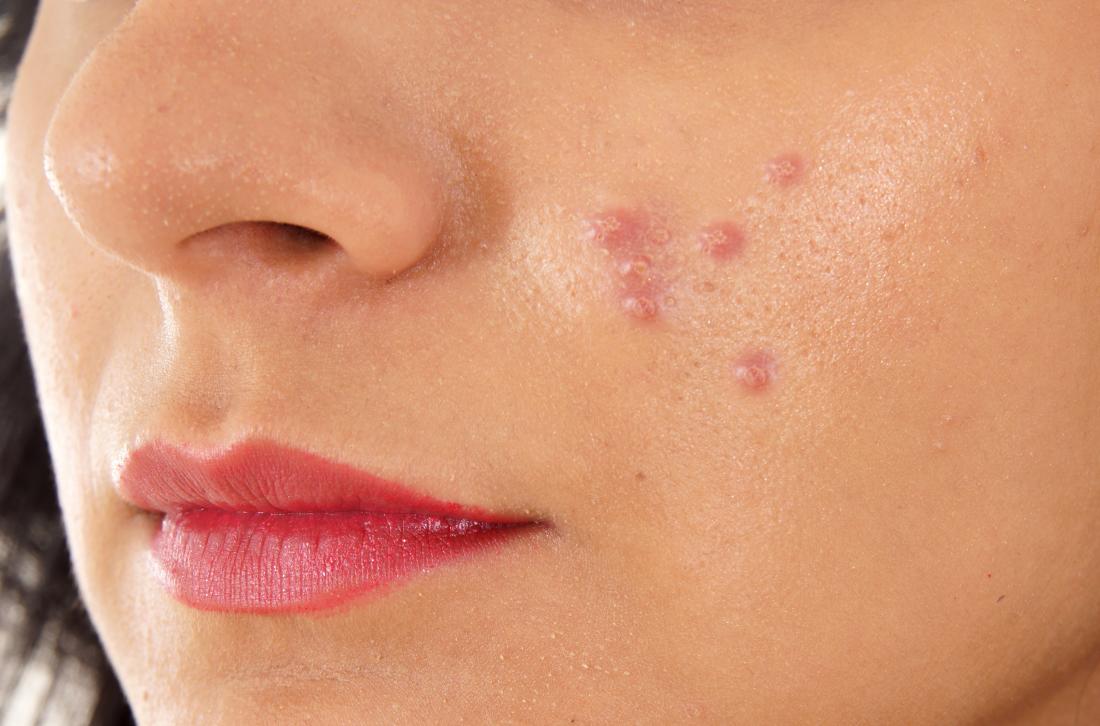These days acne has become a common issue among the youths. Food habits, pollution, and chemical treatments are responsible for acne problems. Acne is a common skin disease that affects an estimated 85% of people at some point in their lives.
Symptoms include pesky pimples that can be frustrating and difficult to get rid of.
While conventional treatments can get rid of pimples, they’re often associated with adverse effects, such as skin irritation and dryness.
As such, a lot of people have turned to natural alternatives to get rid of pimples fast. However, while there are a lot of natural acne remedies out there, only a handful is scientifically proven to help.
Here are 4 natural ways to get rid of pimples fast, although they may have limited research supporting their effectiveness for this purpose.
1. Spot treat with tea tree oil
Tea tree oil is extracted from the leaves of the tree Melaleuca alternifolia, which is native to Australia and works wonders in the treatment.
It’s well known for its ability to fight bacteria and reduce skin inflammation. Specifically, tea tree oil helps fight P. acnes and S. epidermidis, two types of bacteria that can cause pimples. The tea tree oil treatment also resulted in fewer adverse effects, including dryness, irritation, and burning.
It’s important to note that tea tree oil is very potent and can cause redness and irritation when applied directly to the skin. For this reason, it should be diluted with a carrier oil.
Carrier oil, also known as base oil or vegetable oil, is used to dilute essential oils and absolutes before they are applied to the skin in massage and aromatherapy.
2. Spot treat with other essential oils
In addition to tea tree oil, many other essential oils with antibacterial and anti-inflammatory properties can help clear up pimples quickly.
A large scientific review found that essential oils of cinnamon, rose, lavender, and clove fight the acne-causing bacteria S. epidermidis and P. acnes. Rosemary and lemongrass were also shown to inhibit P. acnes.
Like tea tree oil, these essential oils are very concentrated and can cause irritation if applied directly to the skin. Be sure to dilute all essential oils with carrier oil, perform a test patch before regular use, and discontinue use should irritation develop.
3. Apply green tea to the skin
A lot of people drink green tea for its health benefits, but it can also be helpful when applied directly to the skin.
Green tea contains flavonoids and tannins, which are known to help fight inflammation and the bacteria that may cause pimples.
It’s also high in the antioxidant epigallocatechin-3-gallate (EGCG), which has been shown to fight inflammation, reduce sebum production, and inhibit the growth of P. acnes in people with acne-prone skin
There are a handful of skincare products on the market that contain green tea, but it’s very simple and cost-effective to make your own mixture at home.
4. Moisturize with aloe vera
Aloe vera is a tropical plant with leaves that produce a clear gel.
When applied to the skin, aloe vera gel has been shown to help fight bacteria, reduce inflammation, and promote wound healing.
Because of this, it’s a popular treatment for a variety of skin conditions, including psoriasis, rashes, cuts, and burns.
There are limited studies on the ability of aloe vera to fight pimples specifically, but existing research is promising.
Aloe vera contains lupeol, salicylic acid, urea nitrogen, cinnamonic acid, phenols, and sulfur, all of which inhibit bacteria that might cause pimples.
In one study, varying concentrations of aloe vera gel were added to clove-basil oil and evaluated for anti-acne properties. The higher the concentration of aloe vera in the lotion, the more effective it was at reducing pimples.
Another study found that using 50% aloe vera gel with tretinoin cream was significantly more effective at clearing up pimples than tretinoin cream alone. Tretinoin cream is an acne medication derived from vitamin A.
Although aloe vera gel on its own was not effective at treating pimples, it enhanced the anti-acne effects of clove-basil oil and tretinoin cream.
While aloe vera gel may help clear up pimples on its own, it may be more effective when combined with other remedies or medications.
Worried about the fact from where to get these? Don’t worry!
You can now easily get quality products from Quickobook. Book your appointment









Comments (0)
No comments yet. Be the first to share your thoughts!
Leave a Comment